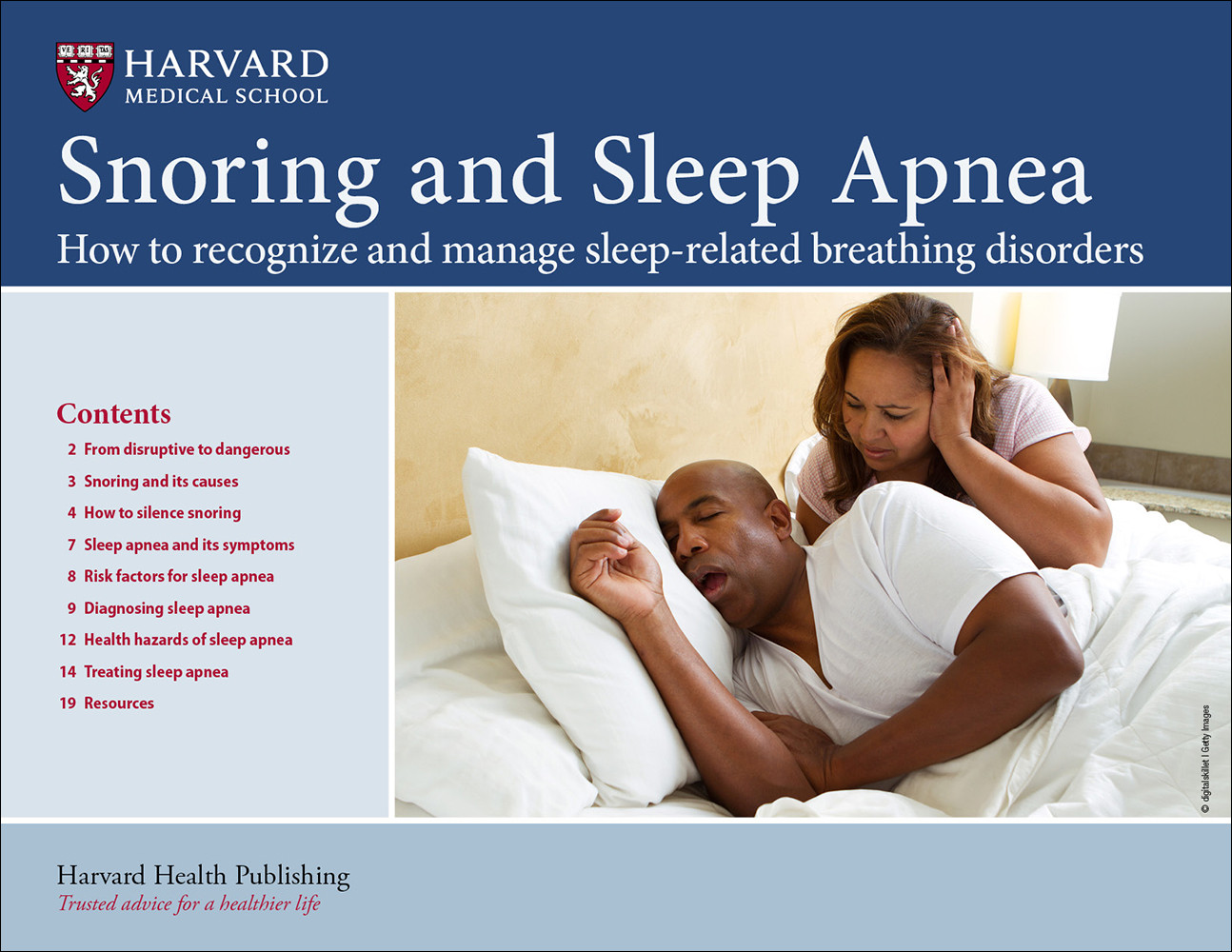Sleep apnea may lead to weaker bones and teeth
Research we're watching
- Reviewed by Toni Golen, MD, Editor in Chief, Harvard Women's Health Watch; Editorial Advisory Board Member, Harvard Health Publishing; Contributor

People with sleep apnea — meaning they briefly and repeatedly stop breathing while sleeping — are more likely to have low bone density, a small new analysis suggests.
The study, published online Nov. 11, 2022, by The Journal of Craniomandibular and Sleep Practice, used a type of imaging called cone beam computed tomography (CBCT) to measure bone density in the head and neck of 38 adults undergoing orthodontic treatment, half of whom had sleep apnea. The researchers found that participants with apnea had significantly lower bone density in the head and neck than those who didn't have the condition.
Sleep apnea can trigger low oxygen levels and inflammation in the body, which may interfere with the continual cycle of bone breakdown and renewal, researchers said. This could ultimately lower bone density levels, increasing the risk of broken bones and causing teeth to become loose.
Screening tests for bone density are an important part of routine care for many people, including all women 65 and older.
Image: Somsak Bumroongwong/EyeEm/Getty Images
About the Author

Maureen Salamon, Executive Editor, Harvard Women's Health Watch
About the Reviewer

Toni Golen, MD, Editor in Chief, Harvard Women's Health Watch; Editorial Advisory Board Member, Harvard Health Publishing; Contributor
Disclaimer:
As a service to our readers, Harvard Health Publishing provides access to our library of archived content. Please note the date of last review or update on all articles.
No content on this site, regardless of date, should ever be used as a substitute for direct medical advice from your doctor or other qualified clinician.
















